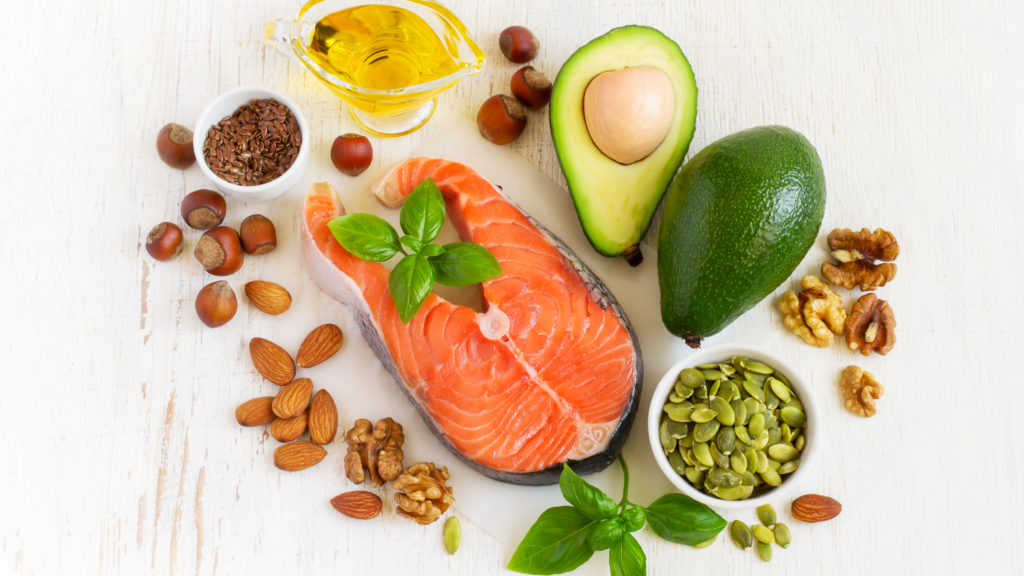You may have read on social media that seed oils are toxic and linked to a wide variety of health conditions from infertility to cancer. Our dietitian breaks down some of these claims and examines the evidence behind them.
What are seed oils?
As their name suggests, seed oils are oils extracted from the seeds of plants including canola, sunflower, safflower, grapeseed and sesame. See oils are widely used in cooking and food preparation, due to their neutral flavour and high smoke point, making them suitable for a variety of culinary uses.
Do seed oils cause inflammation?
Seed oils are naturally rich in healthy monounsaturated and polyunsaturated fats, including essential Omega 3 and Omega 6 fatty acids. Whilst the ratio of fats varies greatly between seed oils, a common feature is most are high in Omega 6s. The widespread use of seed oils in restaurants and processed foods, has significantly increased the amount of Omega 6 in our diets over time. Some claim that this rising Omega-6 consumption may contribute to inflammation in our bodies.
Despite what you might read on the internet, there is virtually no high-quality scientific evidence to support the claim that consuming Omega 6 fatty acids contributes to inflammation in humans1,2,3. Omega 6 has been convincingly shown to support heart health by lowering cholesterol and improving blood sugar levels4. In fact, several studies have found higher Omega 6 is linked to reduced inflammation in humans.5,6,7
Instead of cutting back on Omega 6s, focus on increasing the amount of Omega 3 fats in your diet. Omega-3 fatty acids offer numerous benefits including heart, brain, skin and joint health.
Top sources of Omega 3 fats
- Oily fish
- Chia seeds
- Flaxseeds
- Walnuts
- Soya beans

Are seed oils unstable?
Critics of seed oils argue they oxidise easily when heated, potentially producing harmful byproducts. The chemical structure of unsaturated fats makes them more prone to oxidation, especially when reheated at high temperatures, as often seen in commercial deep fryers. However, most seed oils have high smoke points and are perfectly safe for use in home cooking. To reduce the risk of oxidation, avoid reusing cooking oil and store bottles in a cool, dark place with the caps tightly sealed.
Are seed oils toxic?
Most seed oils are extracted using solvents like hexane, leading to concerns about potential chemical residues in the final product. However, the amount of these residues in seed oils is minimal and strictly regulated by the Food Standards Code in Australia and New Zealand. Seed oils have been safely used in both countries for many years. Seed oils have been safely used in Australia/New Zealand for many years. If you are concerned, try cold-pressed oils such as olive or avocado oil, which are made without heat or chemicals.
The final verdict on seed oils
Much of the negative press surrounding seed oils is exaggerated. It’s true many of the processed foods containing seed oils such as chips, biscuits and deep-fried foods, are not good for our health as they often lack nutrients and are high in sugar and sodium. However, this is more about the overall quality of processed foods, rather than the seed oils themselves. It’s a good idea to choose fresh, less-processed foods wherever possible. Extra virgin olive oil is still our top pick when it comes to the best oil for cooking and dressings, however seed oils are an affordable, healthy and perfectly safe alternative.
References
- Johnson et al. 2012. Effect of dietary linoleic acid on markers of inflammation in healthy persons: a systematic review of randomized controlled trials. J Acad Nutr Diet. 112(7):1029-41.
- Ajabnoor et al. 2021. Long-term effects of increasing omega-3, omega-6 and total polyunsaturated fats on inflammatory bowel disease and markers of inflammation: a systematic review and meta-analysis of randomized controlled trials. Eur J Nutr. 60(5):2293-2316.
- Su et al. 2017. Dietary linoleic acid intake and blood inflammatory markers: a systematic review and meta-analysis of randomized controlled trials. Food Funct. 20;8(9):3091-3103.
- Kris-Etherton. 2010. The Debate about n-6 Polyunsaturated Fatty Acid Recommendations for Cardiovascular Health. J Am Diet Assoc. 110(2):201-4.
- Marklund et al. 2019. Biomarkers of Dietary Omega-6 Fatty Acids and Incident Cardiovascular Disease and Mortality. Circulation. 139:2422–2436
- Asp et al. 2011. Time-dependent effects of safflower oil to improve glycemia, inflammation and blood lipids in obese, post-menopausal women with type 2 diabetes: a randomized, double-masked, crossover study. Clin Nutr. 30(4):443-9.
- Bjermo et al. 2012. Effects of n-6 PUFAs compared with SFAs on liver fat, lipoproteins, and inflammation in abdominal obesity: a randomized controlled trial. Am J Clin Nutr. 95(5):1003-12.



